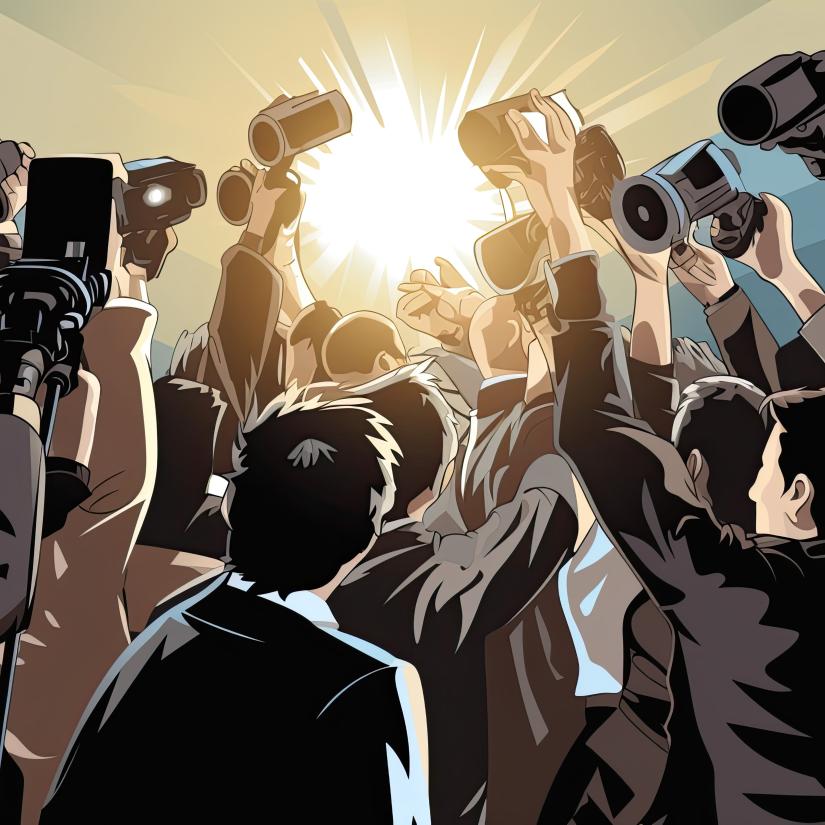Which commercial TV network didn't get the memo?

Australian journalism took a big hit this week, with the airing of claims about the tactics used by Seven Network to woo Bruce Lehrmann to give an exclusive interview to its weekly current affair show Spotlight.
Judgment in the Lehrmann v Network Ten and Lisa Wilkinson defamation case was due to be handed down by Justice Michael Lee. Instead, the judge found himself re-opening the case so Ten could present evidence it said would go to Lehrmann’s character. That evidence was, in short, a disturbing picture of the way some practise journalism and – though denied by Seven – now threatens its reputation.
The only honourable legacy upheld in the sordid and squalid saga that has spurned innumerable other legal proceedings, is the perhaps self-interested decision by the Seven Network to maintain the confidentiality of the sources of what one of its former employees claims was the leaking of a log of correspondence, not legally permitted to be seen by parties outside the original criminal action against Bruce Lehrmann. A win of sorts for the MEAA Code of Ethics.
That former employee was Spotlight producer Taylor Auerbach, who says he was Bruce Lehrmann’s ‘babysitter’ whilst the network was wooing him to give an interview that aired after the criminal proceedings collapsed. The wooing allegedly took the form of payment for cocaine and sex workers for Lehrmann, along with multiple expensive dinners and a golf trip to Tasmania in return for the interview and access to legal documents Seven had no entitlement to see.
All of this, if true, reflects poorly on Spotlight. The claim of big spending to woo interviewees is getting attention because, in this case, it is beyond what we have seen in the past – involving, as it allegedly did, payment for drugs and sex workers. In the closing minutes of the reopened hearing, Justice Lee was told that none of the journalists who’d worked on Ten’s Project segment was a member of the MEAA – therefore, they were not subject to its Ethics Code. We can only guess that nor were the Spotlight team beholden to the union’s code.
In any event, as our research has shown, journalists have a worrying tendency to not be aware of what the Code of Ethics contains, at least in relation to the reporting of conflict. Our research showed current written codes of ethics play a peripheral role at best and while journalists may be aware of the existence of the MEAA Code of Ethics the correspondents we spoke to are unfamiliar with what it contains. There is little reason to believe that this would be any different for journalists chasing a domestic story, particularly one so highly sought after. Dr Matt Collins, for the Ten Network pointed out, journalism is ‘a complicated … evolving profession involving different mediums of communication, different business exigencies.’ Clearly the business exigency to get the scoop was an overriding one for Spotlight, despite the Code counselling journalists to ‘not permit advertising or other commercial considerations to undermine accuracy, fairness or independence’. Neither this, nor the code’s advice to do one’s ‘utmost to ensure disclosure of direct or indirect payment’ helped in assuring good journalistic practice.
The Spotlight show’s ‘take no prisoner’ approach, detailed by Auerbach, harks back to the 70’s and 80’s when journalism involved a lot of hard drinking, well exercised corporate credit cards and little shame or concern for the payment of stories. Back in the day, this modus operandi was mostly laughed off although even then, paying for cocaine and sex workers would have been frowned upon. It’s been convenient to believe these practices had either subsided or disappeared.
If Auerbach’s evidence is true, they have neither subsided nor disappeared, at least not at the Seven Network. It is perhaps the case that the MEAA’s Code of Ethics is so vague as to be meaningless and in dire need of review so that it is less aspirational, takes on a capacity to create (not just encourage) ethical journalism and above all else is enforceable, even if only for MEAA members. Or for a new and digitally responsive set of standards to be devised and applied across all news communication, as Sacha details below. The alternative leaves journalism languishing below used car salesmen in the trust stakes.

Monica Attard, CMT Co-Director
